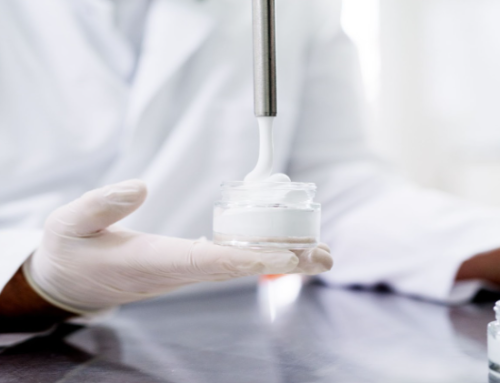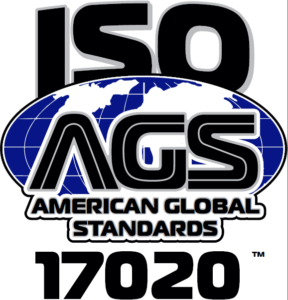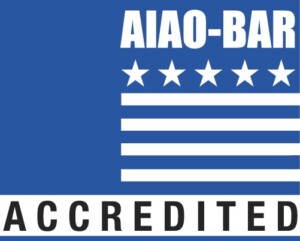Your Guide to Cosmetic GMPs: The 10 Key Elements
Navigating GMP Compliance: Ensuring Safety and Quality in Cosmetic Manufacturing
Good Manufacturing Practices (GMPs) are a set of guidelines and regulations designed to ensure that products are consistently produced and controlled according to established quality standards.
In the context of cosmetic manufacturing, GMPs are critical for ensuring the safety, efficacy, and quality of products that consumers use daily. This article will explore what GMPs are, why they matter in cosmetic manufacturing, and how they impact both manufacturers and consumers.
What Are Cosmetic GMPs?
GMPs are a series of practices required by the FDA through MoCRA and cover all aspects of production, from the raw materials, facilities, and equipment to the training and personal hygiene of staff. In cosmetic manufacturing, GMPs are particularly important because they help prevent contamination, mislabeling, and other errors that could compromise product safety and efficacy.
Why Are GMPs Important in Cosmetic Manufacturing?
1. Ensuring Product Safety and Efficacy
- Cosmetics are applied directly to the skin, often daily, making it essential that they are free from harmful contaminants, and are formulated safely and accurately per the label. GMPs help manufacturers minimize risks.
- Compliance with GMPs is not just about avoiding legal issues; it’s also about maintaining the trust and confidence of trade customers and end use consumers.
2. Regulatory Compliance
- These regulations, which have the force of law, require that manufacturers, processors, and packagers take proactive steps to ensure that their products are safe, pure, and effective.
- GMP regulations require a quality approach to manufacturing, enabling companies to minimize or eliminate instances of contamination, mix-ups, and errors.
3. Maintaining Consistent Quality
- GMPs ensure that every batch of a cosmetic product meets the same specifications. Consistency is crucial for brand reputation, as customers expect the same quality and performance from every purchase.
- Making poor quality products does not save the manufacturer money. In the long run, it is more expensive to find mistakes after they have occurred than preventing them in the first place.
4. Minimizing Recalls and Waste
- Poor manufacturing practices can lead to defective products, which might result in costly recalls and significant and costly waste. By following GMPs, manufacturers can reduce the likelihood of errors that lead to these issues, ultimately saving time, money, and damage to their reputation.
Key Components of GMPs in Cosmetic Manufacturing
1. Quality Management
- A robust quality management system is the foundation of GMPs. It includes defining quality policies, procedures, and responsibilities, ensuring that everyone in the organization is committed to maintaining high standards.
2. Personnel
- Proper training and hygiene practices for personnel are critical. Employees must be knowledgeable about GMPs and understand their role in maintaining product quality. This includes such things as proper handwashing, wearing protective clothing, and avoiding actions that could contaminate products.
3. Facility and Equipment
- The manufacturing environment must be clean, well-maintained, and suitable to produce cosmetics. Equipment should be regularly cleaned and calibrated to ensure it functions correctly. These procedures needed to be written, followed, and logged for compliance.
4. Raw Materials
- The quality of raw materials is crucial to the final product. GMPs require manufacturers to source these materials from reputable suppliers, perform quality checks upon receipt, and store them in appropriate conditions to prevent degradation or contamination.
- Raw materials of particular interest in the cosmetics industry include water, color additives, and prohibited and restricted cosmetic ingredients.
5. Production Processes
- GMPs require manufacturers to document and follow standardized production processes. This documentation ensures that every batch of a product is made the same way, reducing the risk of errors and ensuring consistency.
6. Packaging and Labeling
- Packaging materials must protect the product from contamination and degradation. Labels must be accurate and comply with regulatory requirements, providing consumers with the information they need to use the product safely.
7. Documentation and Record Keeping
- Packaging materials must protect the product from contamination and degradation. Labels must be accurate and comply with regulatory requirements, providing consumers with the information they need to use the product safely.
8. Laboratory Controls
- Laboratory controls include such details as sample collection techniques per , specifications, test methods, laboratory equipment, and technician qualifications.
9. Internal Audits
- Effective procedures for internal audits must be written and followed, occurring regularly or on demand.
10. Complaints, Adverse Events, and Recalls
- There must be internal procedures to address and report, as necessary, all complaints and adverse events and their severity. A recall procedure must be in place in the event this becomes necessary for public safety purposes.
The Impact of GMPs
For consumers, GMPs are a safeguard for the cosmetic products they use. When manufacturers adhere to GMPs, consumers can trust that the products they purchase are consistent and meet regulatory standards. This trust only accelerates the success of cosmetic brands, as it fosters customer loyalty and enhances brand reputation. Poor quality cosmetics are not only a safety concern, they can also a waste of money if they do not perform as advertised.
For manufacturers, adhering to GMPs is not just about regulatory compliance—it’s about building a brand that consumers can trust. As the cosmetic industry continues to grow and evolve, the importance of GMPs will only increase, making them a critical component of successful cosmetic manufacturing.
How cGMP Consulting Can Help
At cGMP Consulting, we understand the complexities of GMP compliance in the cosmetics industry. Our team of experts is dedicated to helping cosmetic manufacturers implement and maintain GMPs, ensuring that their products meet the highest standards of quality and safety. By partnering with us, you can be confident that your manufacturing processes are in full compliance with MoCRA and other relevant regulations.
Why Choose cGMP Consulting?
Choosing the right partner for GMP compliance is crucial for the success of your cosmetic brand. Here’s why cGMP Consulting stands out:
- Expertise: Our team has extensive experience in GMP compliance and the cosmetics industry, providing you with the knowledge and tools you need to succeed.
- Tailored Solutions: We offer customized services to meet the unique needs of your business, whether you’re a small startup or a large enterprise.
- Proactive Approach: We help you stay ahead of regulatory changes, minimizing disruptions.
- Comprehensive Support: From initial audits to ongoing monitoring and training, we provide end-to-end support to ensure your compliance efforts are sustainable and effective.
Conclusion
GMPs are an essential component of cosmetic manufacturing, ensuring that products are safe, effective, and of consistent quality. For both consumers and manufacturers, adherence to GMPs is crucial for building trust and maintaining a strong brand reputation. cGMP Consulting is here to help you navigate the complexities of GMP compliance, providing the expertise and support you need to succeed in the competitive cosmetics industry.
Connect with our experts at https://cgmpconsulting.com/contact-us/ to start your journey toward GMP excellence and ensure your cosmetic products meet the highest industry standards.






